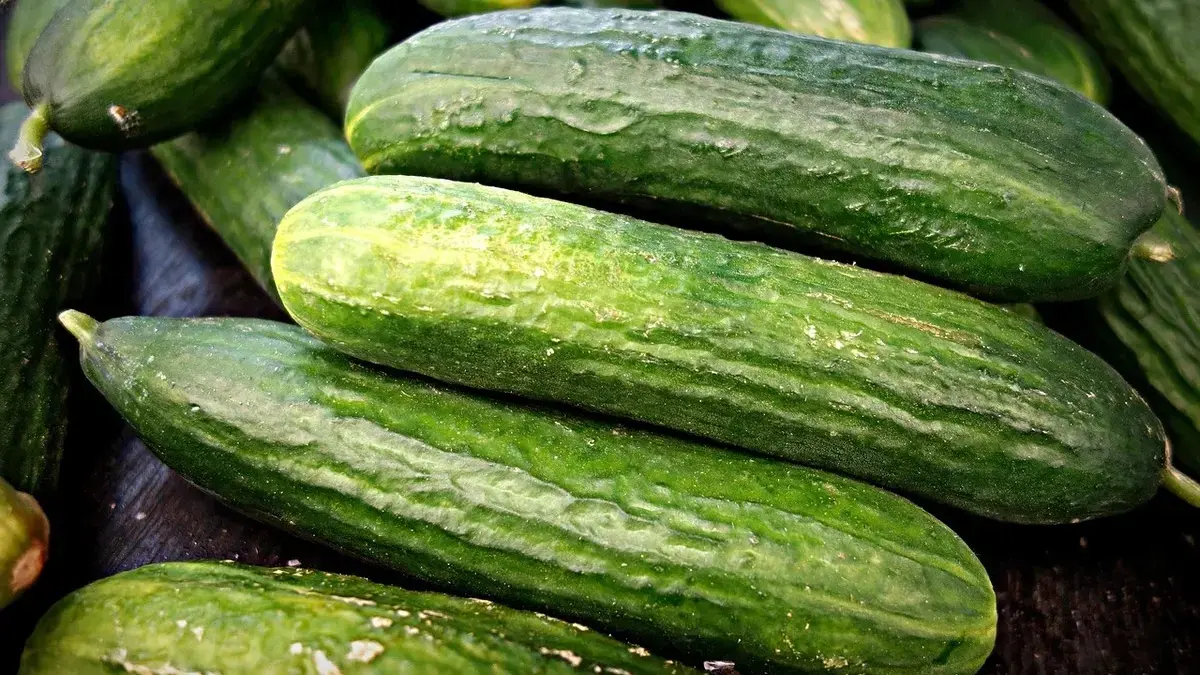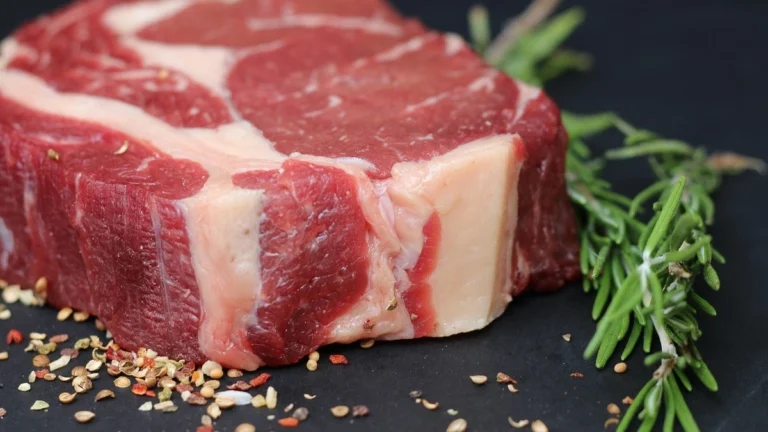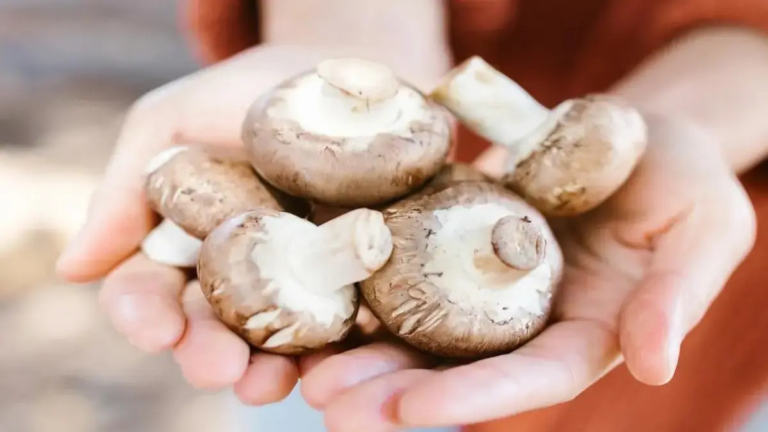Cucumbers aren’t just a refreshing addition to your salads or a crunchy snack. These crisp green vegetables are loaded with nutrients and offer impressive health benefits that make them a smart addition to any diet. From hydration and weight management to glowing skin and strong bones, cucumbers are truly nature’s versatile superfood. Let’s take a closer look at what makes them so good for you.
NUTRITIONAL PROFILE OF CUCUMBERS
A medium-sized cucumber (about 8 inches long) contains:
• Calories: only 30–45
• Water: around 96%
• Carbohydrates: 6–11 grams
• Protein: 1–2 grams
• Fiber: 1–1.5 grams
• Fat: less than 0.5 grams
• Vitamin K: 49% of the daily value
• Vitamin C: 6–8% of the daily value
• Potassium, magnesium, and manganese: small but important amounts
With so many nutrients for so few calories, cucumbers give you a lot of health benefits in every crunchy bite.
SUPER HYDRATION AND WATER
To start, cucumbers are hydration heroes. With roughly 96% water, they’re one of the most hydrating foods you can eat. Staying well hydrated is essential for almost every function in your body. Munching on cucumber slices especially in summer or after exercise helps replace fluids and electrolytes naturally, like a crisp, plant-based sports drink.
POWERFUL ANTIOXIDANT PROPERTIES
Cucumbers also protect your cells. They contain antioxidants such as flavonoids, tannins, cucurbitacins, beta-carotene, and vitamin C. These compounds help neutralize harmful free radicals, lowering inflammation and oxidative stress two factors linked to heart disease, cancer, and autoimmune disorders. Regular cucumber intake supports your immune system and keeps cells healthier.
BLOOD SUGAR MANAGEMENT AND DIABETES SUPPORT
Their benefits extend to blood sugar control. Low in carbohydrates, cucumbers are a safe snack for anyone watching blood sugar levels. Animal and lab studies suggest they may help reduce blood sugar, and their fiber slows the absorption of sugar into the bloodstream. Their antioxidants also fight oxidative stress, which may slow the progression of diabetes and its complications.
A WEIGHT-LOSS FRIENDLY FOOD
Trying to manage your weight? Cucumbers are perfect. They’re low in calories yet high in water and fiber, which help you feel full and support regular bowel movements. Swapping high-calorie snacks for cucumber slices is an easy way to cut calories without feeling hungry.
SUPPORT DIGESTIVE HEALTH
Cucumbers keep your digestive system happy. Fiber adds bulk to stool to help prevent constipation, while water softens it for easier passage. Their natural cooling properties can soothe an irritated digestive tract, and pickled cucumbers add probiotics that nourish the gut microbiome.
DON’T PEEL AWAY THE BENEFITS
When you slice a cucumber, think twice before peeling it. The skin is packed with extra fiber, vitamin K, and protective antioxidants nutrients that help support strong bones, a healthy heart, and smoother digestion.
Research shows that most of a cucumber’s antioxidant activity is concentrated in the peel. If you’re concerned about pesticide residues, wash the cucumber thoroughly or choose organic, but keeping the skin on gives you the maximum nutritional benefits.
SUPPORT BONE HEALTH
Strong bones need vitamin K, and cucumbers provide plenty. Vitamin K helps your body absorb calcium and supports bone mineralization, lowering the risk of fractures. They also contain small amounts of calcium for extra support.
HEART HEALTH AND BLOOD PRESSURE
Your heart benefits too. Cucumbers are naturally low in sodium, making them ideal for heart-healthy diets. Fiber helps reduce cholesterol, antioxidants protect blood vessels, and potassium aids in blood pressure control.
SKIN HEALTH
Cucumbers have long been a natural beauty booster. Their high-water content hydrates your skin, while anti-inflammatory compounds reduce puffiness, irritation, and redness. Silica supports connective tissue, antioxidants fight premature aging, and their cooling effect soothes sunburns and minor skin irritations.
ANTI-CANCER POTENTIAL
Some cucumber compounds may help protect against cancer. Lab studies show cucurbitacins can slow cancer cell growth, lignans may lower the risk of certain hormone-related cancers, and antioxidants protect cells from damage. Fiber supports colon health, potentially reducing the risk of colorectal cancer. While cucumbers aren’t a cure, they’re a smart part of a cancer-fighting diet.
BRAIN-BOOSTING BENEFITS
Even your brain can benefit. Cucumbers contain fisetin, an antioxidant linked to nerve cell protection. Their high-water content supports mental clarity, and B vitamins help nourish the nervous system. They’re not a magic memory pill, but they contribute to a brain-healthy lifestyle.
CONCLUSION
From hydration and weight management to heart, bone, skin, and brain health, cucumbers prove that simple foods can offer extraordinary benefits. Adding them to your daily meals is an easy, delicious way to refresh your body and boost your overall well-being. With so much goodness in a low-calorie package, cucumbers truly deserve their title as one of nature’s perfect foods.
FAQs
1. Can eating cucumbers every day be harmful?
For most healthy people, cucumbers are safe to eat daily. Just wash them well to remove pesticide residues and avoid excessive amounts of pickled cucumbers if you need to limit sodium.
2. Do cucumbers help with weight loss?
Yes. Their high water and fiber content add volume with very few calories, which helps you feel full and control calorie intake.
3. Are cucumber peels safe to eat?
Absolutely. The peel contains fiber, vitamin K, and antioxidants. Wash thoroughly or choose organic if you prefer to eat them unpeeled
4. Can cucumbers lower blood pressure?
Cucumbers provide potassium, which helps balance sodium and may support healthy blood pressure. However, they are not a substitute for prescribed medication.
DISCLAIMER
This article is for educational purposes only and is not a substitute for professional medical advice. Always consult a qualified healthcare provider before making significant changes to your diet, especially if you have chronic health conditions or take prescription medications.
CALL TO ACTION
Add more crunch to your day! Slice cucumbers into salads, blend them into smoothies, or enjoy them as a refreshing snack. Your body and your taste buds will thank you.
Read more: https://pharmahealths.com/impact-of-increasing-c-section-delivery-on-society-and-women-health/
REFERENCES
1. USDA FoodData Central. “Cucumber, with peel, raw.”
2. Goyal R, Sharma PL. Phytochemical and pharmacological aspects of Cucumis sativus L. Journal of Food Science and Technology. 2013;50(3):505–512.
3. Schwingshackl L, et al. “Dietary potassium intake and risk of hypertension.” Nutrients. 2020;12(2):555.
4. Booth SL, et al. “Vitamin K and bone health.” Bone. 2014;60:13–18.







